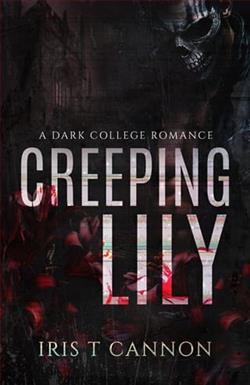Page 71 of Time for You
“And the paper mill?”
Maggie ran her tongue over her teeth, thinking. “I’ve made some changes to how you ran things.”
“I can see that. I’m not upset, Mags. This looks brilliant already. I just want to know what I’m taking over.”
Annoyance flickered across Maggie’s face. “You simply took over what Father had left, which was obviously successful, but ...”
“But?” he prompted.
“But it was stagnating, Henry. Mama did a good job of keeping Uncle Stephen from racking up too much debt before you took over, and you did a fine job at keeping it going. But a business can’t just do what was always done, and anyway, I don’t believe we’ll have much to do with shipbuilding for much longer, anyway. Steamships are clearly going to take over, and if we want to keep up our relationships with timber companies in Scandinavia, we needed to figure out where to send it.”
“Thus, paper,” Henry said, idly flipping through an account book. The hand in it was familiar, but it wasn’t Maggie’s.
“Thus, paper,” Maggie agreed. “Mama’s been helping, too. She can do a lot of sums in her head, said it was all that menu planning us ladies have to do, but between you and me, I think she just likes arithmetic.”
“This—” Henry thumbed through the book, trying to make sense of the figures. “This can’t be right. In only five months?”
Maggie tried to hide the swell of pride, but Henry could see right through her. “By the end of next month, we’ll have added almost a third to our usual import tallies.”
Henry’s eyebrows hit his hairline and he whistled softly. He had known, of course, that his family was capable of surviving without him,but he hadn’t expected them toexcelin his absence. “Who does the firm belong to now?” Women could own some property, but if either sister married, it would become her husband’s instead.
“You, still. Mama was worried about someone trying to take it from us, so we put about that you were on a trip to America, which apparently wasn’t a lie. We just had some details wrong. But that way, if Anne or I were to marry, it would stay with Mama.”
Something cold settled in his gut. They were fine without him, which was comforting but also devastating, because he had comebackto help them. Maybe if he’d come back the first time, he could have realized this and then—no, he couldn’t think that way. He couldn’t contemplate a world where he returned to Daphne for good, because that wasn’t possible anymore. In seven years’ time, she would have moved on. He wanted her to; she deserved happiness. But maybe it didn’t have to be this way, and that knowledge threatened to crack his splintering heart in two.
“Henry? Are you all right?”
“Fine, Mags. Just impressed,” he said, and Maggie, always a little less perceptive than Anne, merely nodded with her head a little higher.
Chapter Thirty
It was a typical Scottish fall day—warm but not hot, with the sky an uncertain mix of sun and clouds, as if the sky woke up that day and couldn’t decide which way to be. A grey cloud would scud in front of the sun and everything would cool slightly, but then the sun would slide out the other side of the cloud and Henry would feel just a tad too warm.
Arthur’s Seat provided a stunning view of Edinburgh itself, and on a Sunday morning, despite his mother’s scandalized protesting, Henry felt far closer to God here than he ever had in church. Or perhaps he had simply grown accustomed to the twenty-first-century habit of sleeping in on Sundays rather than going to church, and this was his compromise. For the nearly three months he’d been back, he had spent every Sunday up there, rather than in the pews with his mother and sisters. There were only a few others scattered around the top of the Seat, everyone else more afraid for their mortal souls, apparently. Church bells clamored distantly, and Henry stayed where he was, sitting on a lone boulder, watching the shadows of clouds chase each other across the city.
He was spending more and more time like this, lately. Maggie wasn’t just assisting him with MacDonald’s Imports, as she kept insisting; she was running it, with Lydia serving as the second-in-command. Henry’s name needed to be on documents to keep it safe, but otherwise he was entirely superfluous. He had thought the relief of being back with his family would help with the gut-wrenching ache he felt every time hethought of Daphne, but instead, he just felt worse. His family loved him, but they didn’t need him, not the way he had assumed. And he loved them, but he didn’t need them—he needed Daphne.
Even worse, he wanted her, and he couldn’t stop thinking about his mistakes. Maybe he should have told her how he felt earlier, long before he thought even she suspected her own feelings for him, but it had felt too soon, amid the chaos of him learning an entirely new way of life. But maybe if he’d done so, he could have returned to the nineteenth century, set his affairs in order, and then returned to the twenty-first. Then again, perhaps that wasn’t the ironclad plan it appeared, as just a few weeks after his arrival in the twenty-first century, Maggie and Lydia might not have yet figured out their strengths for running the business.
It was just all so damned complicated, and Henry couldn’t help but feel like no matter what he had done, it would have been the wrong thing.
Footsteps approached behind him and stopped. “It isn’t like you to brood like this,” George said.
“I’m not brooding.”
“You are,” George argued. “It’s understandable, though. I’d brood too if I left the love of my life behind in a different century.”
“I didn’t—”
“Tell me? No, you didn’t, but you didn’t have to tell me about Sophia, either. I still knew, didn’t I?”
George was the only one privy to that particular heartbreak of his, and had in fact figured out Henry’s true feelings for Sophia before he’d even admitted them to himself. “How did you know?”
George flicked the tails of his coat behind him to sit next to Henry on the rock. “You’ve told us a lot about the people you met in the future, but Daphne remains an enigma, which tells me either you didn’t know her well—unlikely, given that she ran you down, and she looks like a Renaissance painting of Venus.”
“And I have a particular affinity for Venus?” Henry asked wryly.
“You have a particular affinity forpretty women, and calling Daphne merely pretty feels like an insult.”















